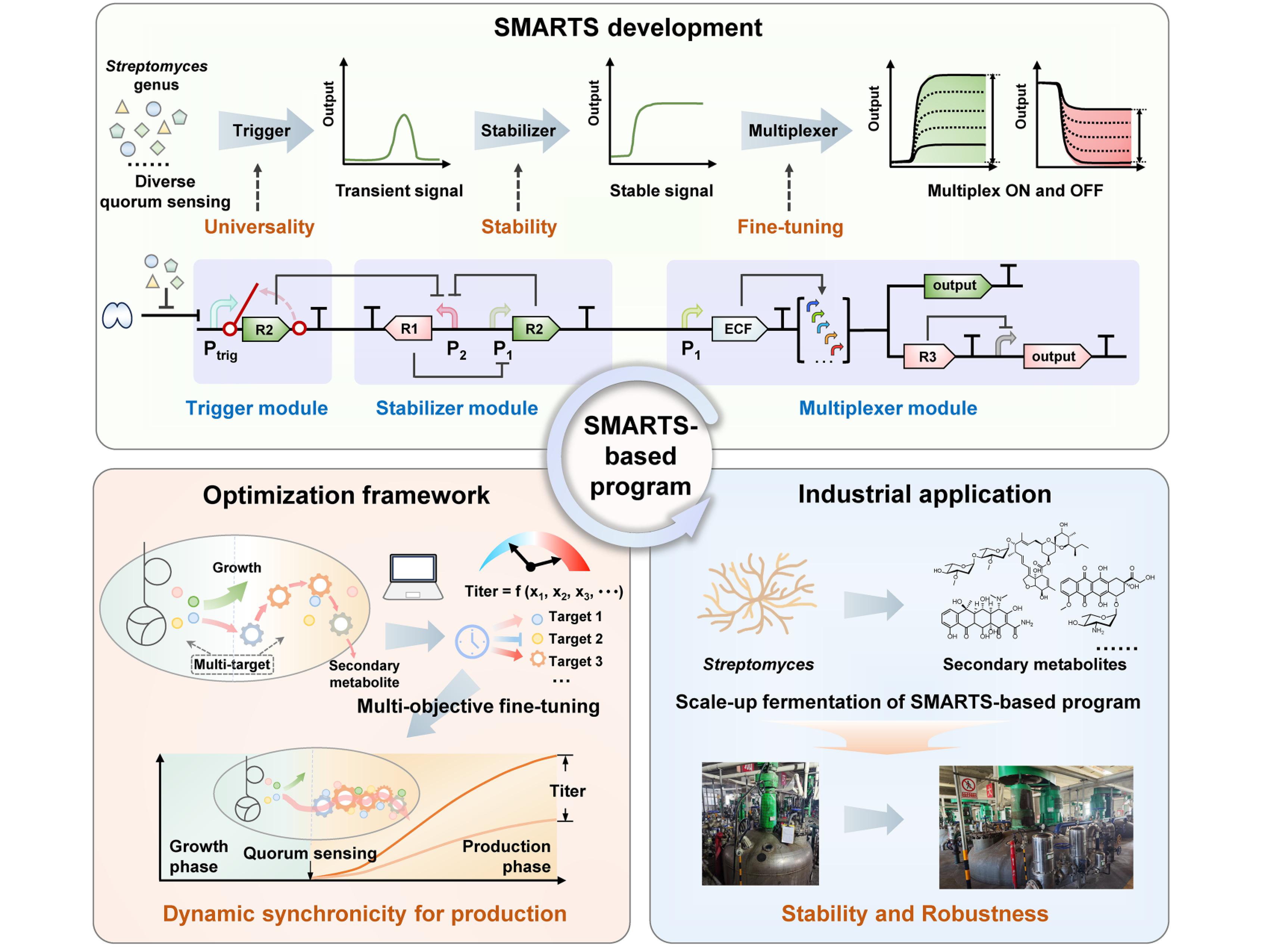In China, annual economic losses caused by nematode diseases are estimated at 80 billion yuan. As a biopesticide with high specificity for nematode control, Baiweimectin (an avermectin B2a derivative) holds significant potential for safeguarding agricultural productivity.
The Institute of Microbiology, Chinese Academy of Sciences, in collaboration with East China University of Science and Technology, the Institute of Plant Protection of the Chinese Academy of Agricultural Sciences, and Hebei Xingbai Pharmaceutical Co., Ltd., has published a new study in Nature Biotechnology on August 15, 2025. The study reports the systematic development of Baiweimectin which exhibits superior nematicidal activity. Furthermore, the researchers have engineered the first microbial strain capable of specifically producing high-purity Baiweimectin, achieving a fermentation yield of 8.4 g/L.
In this study, Prof. WANG Weishan’s team developed a Streptomyces multiplexed artificial system (SMARTS)-based dynamic synchronicity paradigm for enhancing the production of secondary metabolite pharmaceuticals (Figure.1). SMARTS can be plug-and-play across different Streptomyces species, responding to their diverse quorum sensing and auto-modulating multiple targets simultaneously. SMARTS-based optimization framework can be used for combinational dynamic reprogramming the multi-targets for various secondary metabolites. This work culminated in engineering unprecedented high-yield strains for producing anti-nematode insecticide baiweimectin in 120-m3 industrial-scale fermentation level.

Figure 1: Overview of the dynamic synchronicity paradigm for biomanufacturing (image by Prof. WANG Weishan’s group)
Full text link: Scalable secondary metabolite production inStreptomycesusing a plug-and-play system